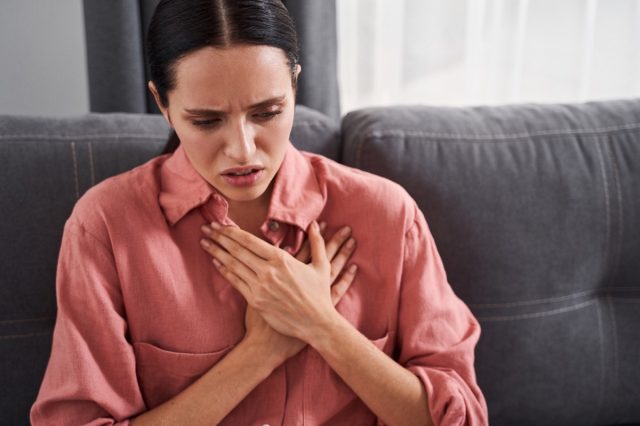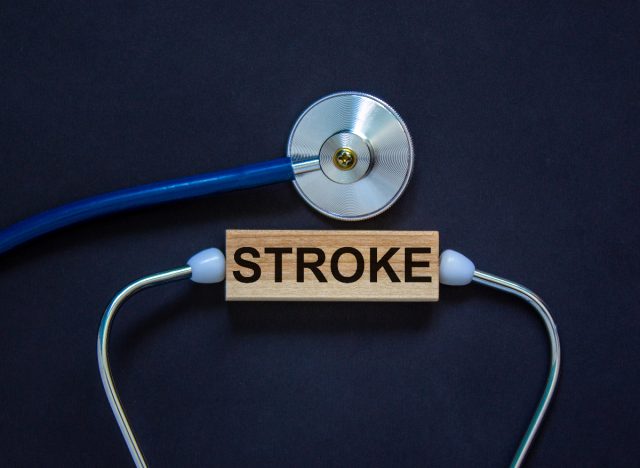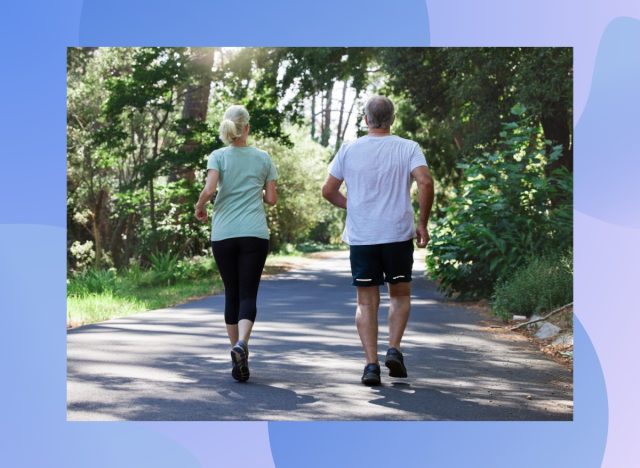Side Effects of High Cholesterol After 50, Says Expert

The topic of high cholesterol gets thrown around quite a bit as we age, and it’s for good reason. We sometimes may not realize how serious it can be to have high cholesterol, especially because it can lead to a number of serious health problems.
It’s definitely a case of “too much of a good thing is a bad thing,” because your body needs cholesterol for its production of healthy cells. But too much cholesterol, which can come from genetics or an unhealthy lifestyle, comes with dangerous side effects.
We talked with Amy Goodson, MS, RD, CSSD, LD, author of The Sports Nutrition Playbook and a member of our medical expert board, about the side effects of high cholesterol after 50 and what we can do to start making healthy changes in our life to lower these numbers.
Here’s what you need to know, and for more health tips, make sure to check out Eating Habits to Lower Cholesterol, According to Dietitians.
Plaque can build up in the arteries

“Over time, high cholesterol increases plaque build-up in the arteries, which can restrict blood flow to the brain and heart, potentially leading to dire consequences like heart attack and stroke,” says Goodson.
According to the American Heart Association, this plaque build-up is called atherosclerosis. Not only can it lead to restricted blood flow, but plaque can also break off and get stuck in the bloodstream, which is another way an artery could be blocked.
This risk of artery blockage is the foundation for the rest of the side effects of having high cholesterol after 50.
Increased risk of heart Attack

According to Goodson, atherosclerosis can happen over time and lead to severe issues with your heart and brain, but there are unfortunately no detectable symptoms.
“If a piece of plaque does break off, it can cause a blood clot to form around it, restricting blood flow to the heart and starving it of necessary oxygen and nutrients, which is called ischemia,” says Goodson. “This, unfortunately, can lead to a heart attack.”
Goodson also says it’s important to be aware of heart attack symptoms and immediately seek emergency medical care if you experience any.
“These symptoms include tightness, squeezing, fullness, pain, or aching in the chest or arms, shortness of breath, anxiousness, trouble breathing, dizziness, and excessive fatigue,” says Goodson.
Increased risk of stroke

Unfortunately, a build-up of plaque in your arteries not only restricts blood flow to your heart, but can also restrict the flow to your brain as well.
“This build-up over time can lead to stroke,” says Goodson. “Symptoms for this include loss of balance and coordination, sudden dizziness, confusion, slurring words, numbness in the face, arm, or leg, especially on one side of the body, or blurred vision.”
If you experience any of these symptoms, seek emergency medical care immediately.
Here are Diet Habits That Are Increasing Your Risk of Stroke, According to Science.
So, how do you lower your cholesterol?

This list of side effects may feel ominous, but the good news is that there are ways of controlling your cholesterol levels and decreasing your risk of these potential health complications.
According to Goodson, these are a few key things you can do to lower your cholesterol:
- First, start exercising a few days a week, but be sure to talk to your doctor before you start.
- Increase your intake of soluble fiber like oats and foods made with oat flour, nuts, and seeds, and fruits where you can eat the skin like apples, pears and berries.
- Finally, try losing weight if you need, because weight loss can help lower cholesterol and improve overall health.
For more tips, read these next: